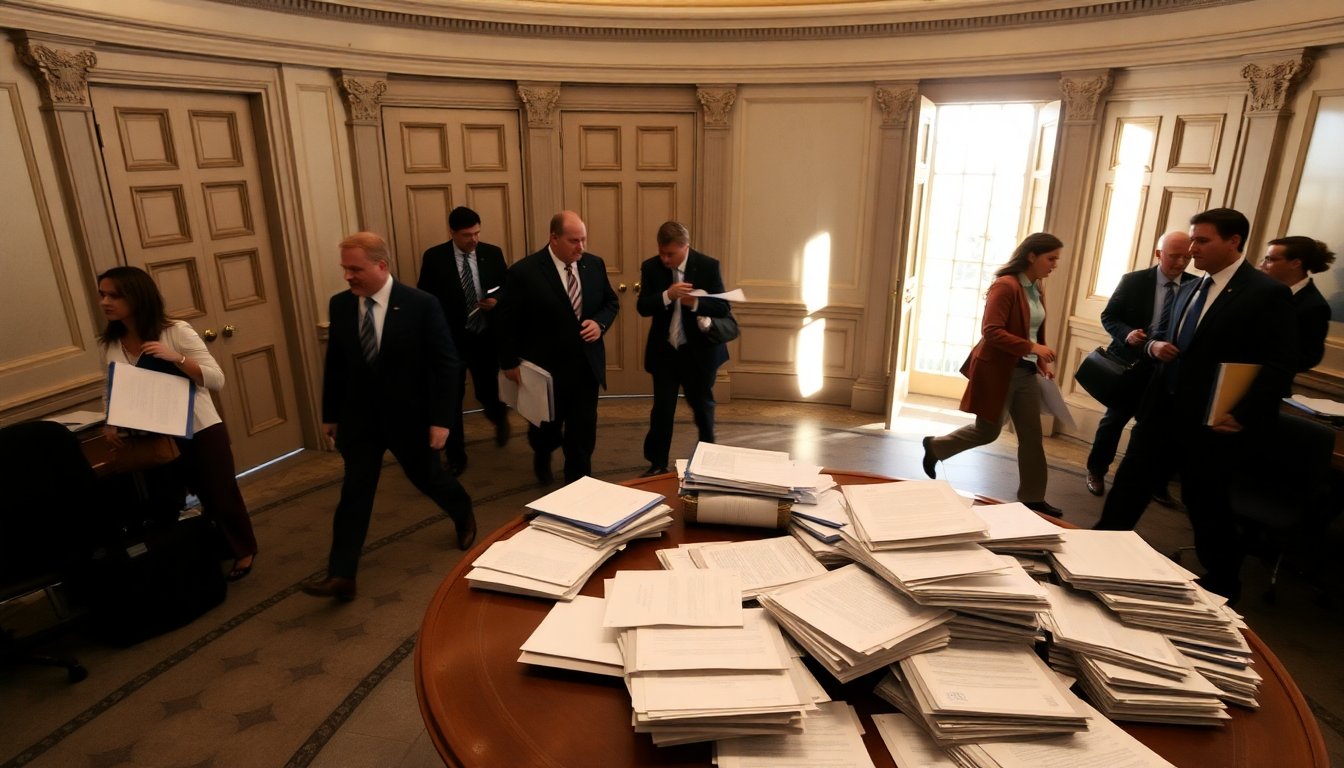Table of Contents
As the deadline for a potential government shutdown approaches, lawmakers are facing increased political tensions and a lack of agreement on funding measures. The end of the fiscal year is nearing, and both House and Senate Republicans are acknowledging the possibility of adjusting their timelines amid ongoing negotiations.
The situation has reached a critical point, as Senate Democrats have consistently rejected the GOP’s proposed continuing resolution (CR), which aims to fund the government until November 21. This marks the eighth rejection of the bill, with expectations of another dismissal looming. Traditionally, CRs serve to extend funding and allow more time for lawmakers to reach a formal agreement on budget allocations. However, initial optimism for a seven-week extension has dwindled to just over five weeks, contingent on a shift in the Democrats’ stance.
Congressional members weigh their options
In light of the uncertainty, Representative Tom McClintock from California emphasized the need to reassess the November 21 deadline due to lost time during the shutdown. “It’s a vital discussion we’re having,” he remarked. He suggests that a new CR might be more beneficial than starting a completely new legislative process. The House passed this CR largely along party lines on September 19, and many House Republicans are now urging the Senate to take action.
Potential solutions on the table
Representative David Valadao, a key figure on the appropriations committee, pointed out that Senate Democrats are responsible for the current stalemate, having stalled the GOP’s bill. He noted that the House has successfully passed twelve individual appropriations bills through his committee, indicating a willingness to negotiate on specific funding issues.
Meanwhile, discussions of a compromise are emerging within the appropriations process. Reports suggest that there may be talks to combine three bills that have already passed both chambers—addressing military construction, veterans’ affairs, and agricultural funding—into a single “minibus” package along with a short-term CR. This could offer a way to navigate the current impasse.
Leadership navigating the crisis
During a recent media call, Speaker of the House Mike Johnson acknowledged conversations about possibly extending the November deadline. He expressed concerns over the impact of delays, stating, “the longer the Democrats stall, the harder it will be to finalize the appropriations process.” He emphasized the need for leadership to monitor developments closely, though he remains hesitant to introduce another CR, fearing it would lead to the same outcome.
Senate Majority Leader John Thune has expressed support for the House’s plan but has not ruled out the possibility of adjusting the deadline if necessary. “We’re running out of time, and we must use this opportunity to proceed with the normal appropriations process,” Thune stated, indicating his willingness to modify the timeline.
Senate Republicans divided on strategy
Some Senate Republicans are resistant to changing the deadline, with Senator John Kennedy asserting that the responsibility lies with the Democrats. He criticized their demands as unrealistic and claimed that the shutdown will persist until they agree to a straightforward CR. This sentiment is echoed by Senator James Lankford, who cautioned that altering deadlines could complicate negotiations, as it would necessitate renegotiation with the House.
Representative Stephanie Bice supported maintaining the current November 21 deadline. “We have already passed all twelve appropriations bills on the House side, and extending the date is not the solution right now,” she emphasized. She argued that the immediate focus should be on reopening the government.
As Congress confronts the looming threat of a government shutdown, the landscape is marked by significant political strife and a lack of consensus on funding strategies. With critical discussions ongoing and various proposals under consideration, the path forward remains uncertain as lawmakers strive to navigate this complex situation.


